Why a Chez Panisse Vet Started Making Raw Vinegar in Brooklyn’s Navy Yard.
“It's a purposeful, small business.”
The Deligram is an ode to the artisanal food makers of New York. The last issue featured a series of spritz recipes from Ashley Santoro, co-owner of Chinatown wine store Leisir and corporate beverage director for Golden Age Hospitality. This week we spoke with a maker whose products are also spritzable: Chris Crawford, the founder of TART, a raw vinegar project in Brooklyn.
The Product: Delightful and surprising drinkable raw vinegars made in small batches with the best possible ingredients available.
The Deli Pick: Oro Blanco, and any seasonal special.
How To Buy: Order online at tartvinegar.com.
Price: $24-30
What inspired you to launch?
I’ve worked in restaurants since I was 15, but started cooking professionally during the recession in 2008. [I was working in the fashion industry], and it's funny to decide to make less money and work more hours and not get as much reward for it. But I needed quick cash to pay rent, so I took a job as a hostess at Serpentine in San Francisco. One day, someone didn’t show up for a garde manger shift and I was asked to jump in. I didn’t have a dream to cook but I kept getting really amazing opportunities and it was fun. I was really lucky to work in restaurants [like Chez Panisse and Mission Chinese] that encouraged trying a lot of new things, so I was making vinegar in restaurants just as an experiment. For a brief moment 15 years ago, I lived with a woman who was a wine rep. We had all these ends of bottles, so I took those and experimented with these old vinegar recipes–like adding raisins and [adjusting] sugar levels, figuring out what ended up fermenting and what didn't.
I really wanted to make a vinegar that would replicate the flavor profile of cel-ray, the acid celery flavor, so that I could make a soda. The original inspiration was just to make a sugar free cel-ray soda: a minimal, non processed product made from celery. I was living overseas, working in East Africa, and I met a microbiologist who helped me figure that out. I spent four years, very loosely, making small batches in my spare time and giving them to friends, trying to figure out what tasted good and what didn't work. I was making them in five gallon glass fermentation tanks at my house and made one that was what I wanted. And when I did that, I went to the microbiologist and asked him, “What do you think of this?” And he was like, “This is it. Make a bunch of it and you'll be great.”
And I kind of started to do that… At the time I'd gotten out of commercial kitchens and was working for the Criterion Collection. I was still in food, but in a totally different capacity. I would cook for filmmakers or artists or writers, and do like special occasion events. And one thing that was really great was I had easy access to the Union Square Farmers Market. I really fell in love with some of the farmers there and one of them was Campo Rosso, based in Pennsylvania. The first year they decided to do celery, I was using their products and could see a substantial difference in what I was making with their celery as opposed to other celery.
When the pandemic began in March, I had signed a lease for a small food space. I thought I would still have my cooking jobs, but the pandemic happened, I had no work and I thought, “I have to make a lot of vinegar right now. Like, immediately.” And that's kind of what I did. My son was with me a lot, I made a lot of vinegar, I taught myself how to make a website (which was not my thing). I still thought, this is going to be a fun thing that I do but no one’s ever gonna buy vinegar for $20 or $25. Because I did know about pricing, and the only way using really expensive ingredients works is to make the product expensive too.
This was the epitome of a passion project. I got to a point where I was like “okay, I'm gonna fail at this so I can leave it behind, or make it.” My mission has always been to work with ingredients and farmers I really admire, and to make something that tastes really good. And so far, I still am small because of the nature of how I make my products. Basically I use a lot of vinegar to make vinegar, in [the fermentation process], so I can't grow. It’s doing great, but I can't triple it. It really grows at a pace that feels great to me. It's a purposeful, small business. It keeps you connected to the product.
What is your dream for the brand?
I would love to have canned vinegar soda drinks. I've been looking at recipes for posca, a classic drink from the Roman era – if you couldn't afford beer and wine, they’d mix vinegar, water and salt and that's how you hydrated. It's like the original Gatorade. So I would love to be able to make something that is accessible, that you could have [on its own] or get a larger bottle to pair with food. I love food pairings with wine, but I think that we're a little bit wine heavy lately. I've had a lot of wonderful 5-course, paired dinners where I don't remember much because of the drinking. But I love the alternative of having non-alcoholic beverages or low-alcohol wine food pairings.
I really would love to hold ticketed dinners in the space. I miss doing events. Because that is so going to always be a core part of who I am, gathering people, feeding them – like that feeling of when you're at Christmas and you fall asleep on the couch, but you can hear everyone talking still. A nice, nurturing feeling.
Story by Megan Perry.
Photos by Teddy Wolff for The Deligram.
This interview has been condensed and edited for clarity.




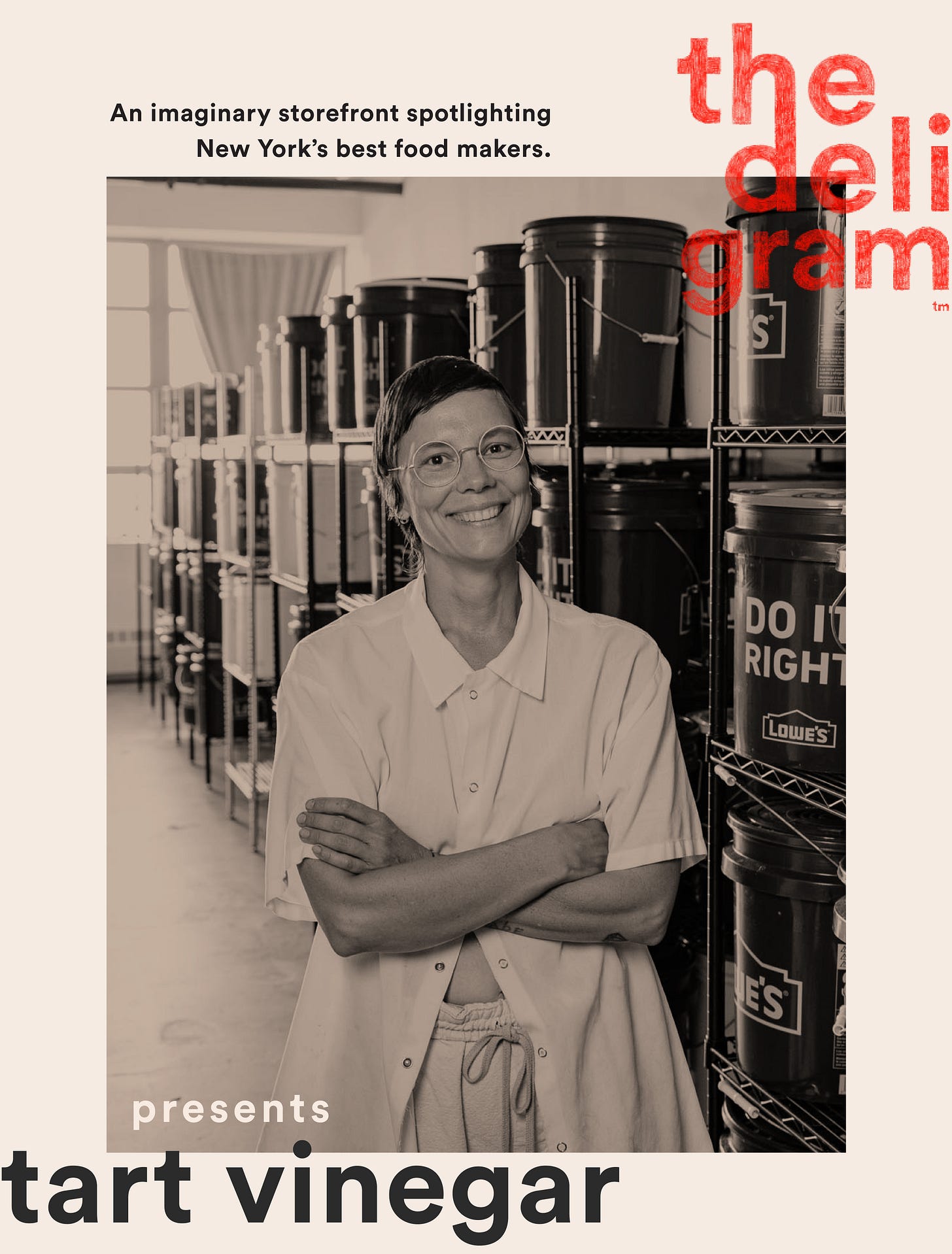
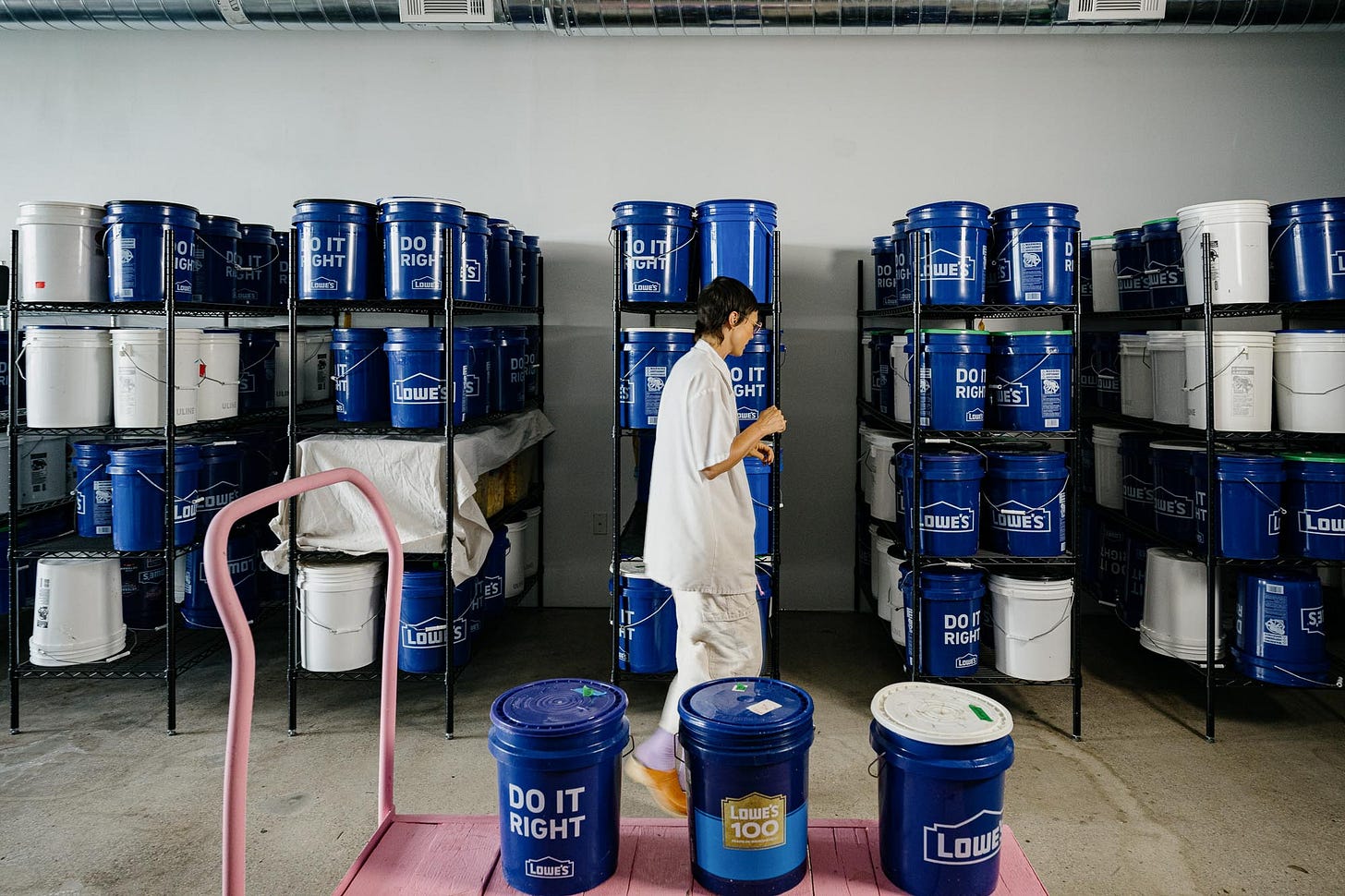

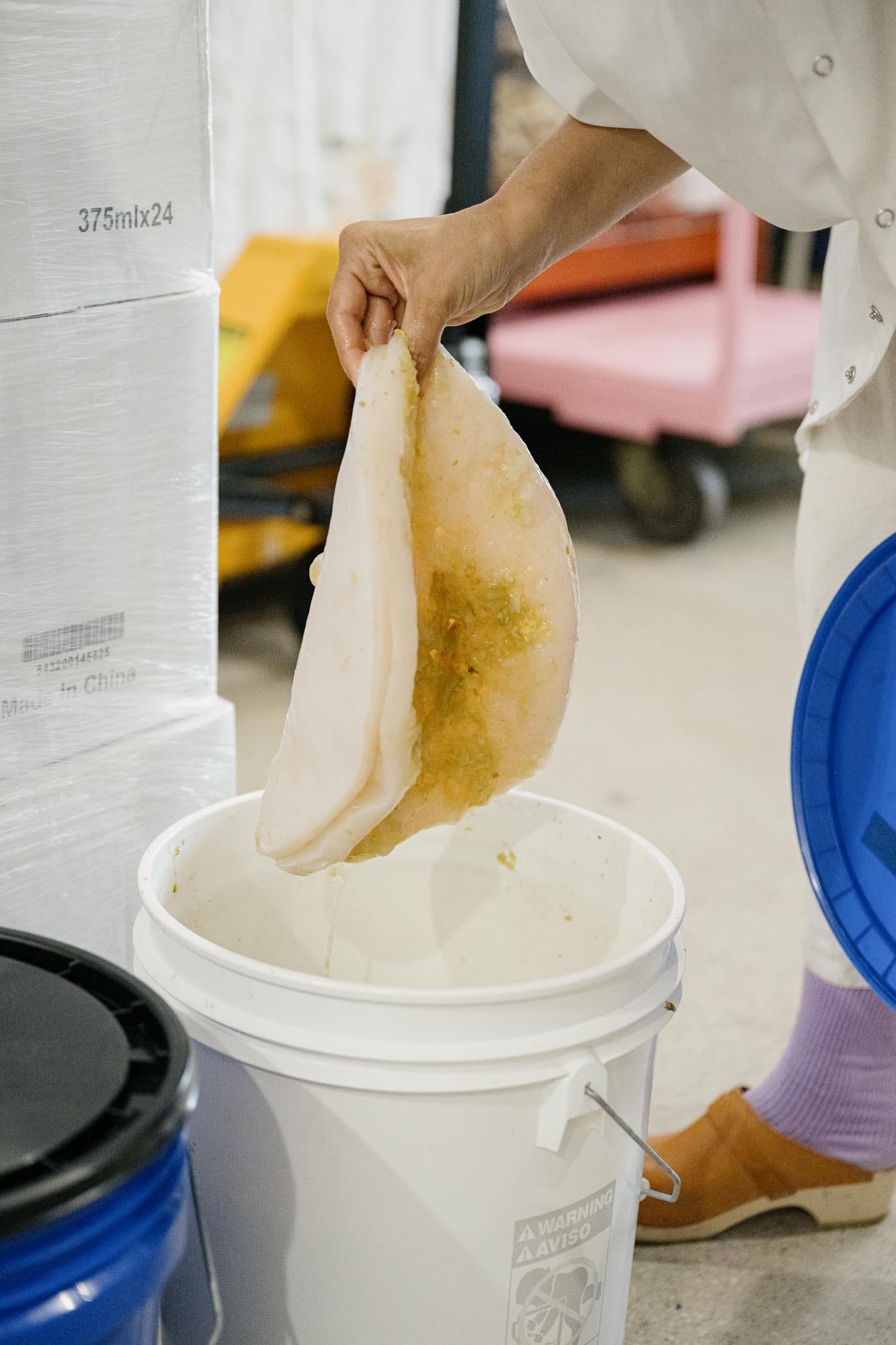



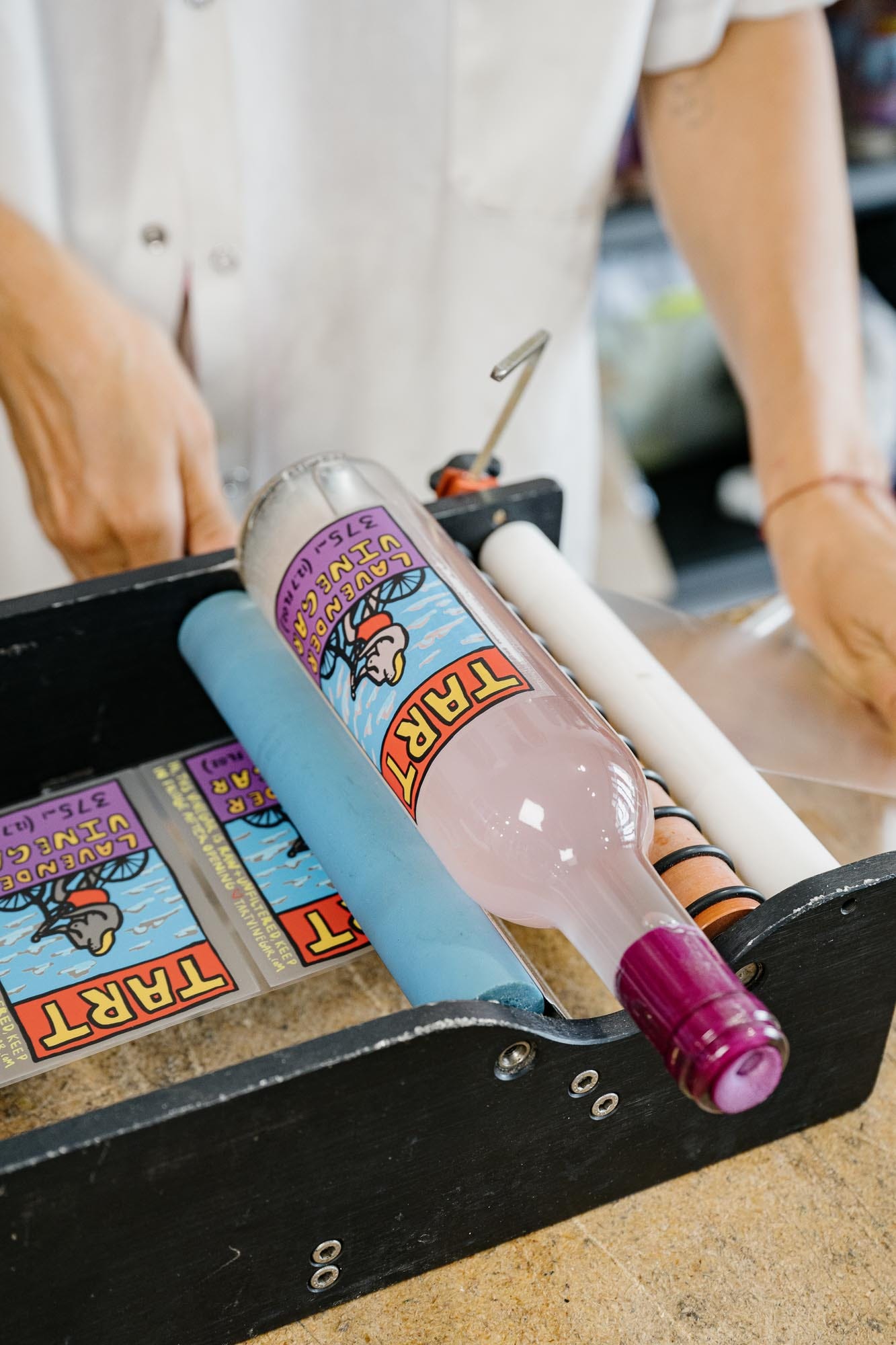

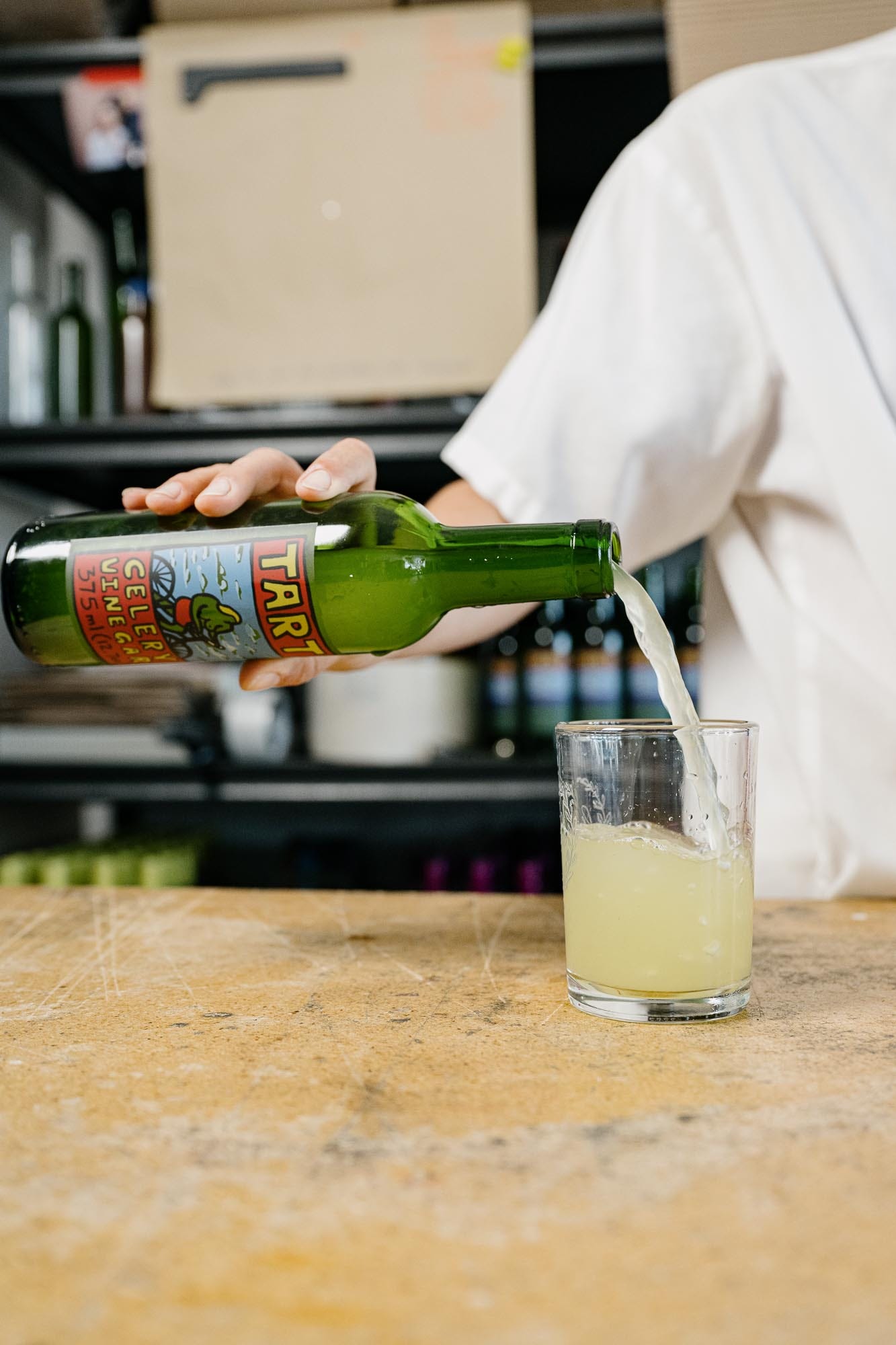
Gosh I love this